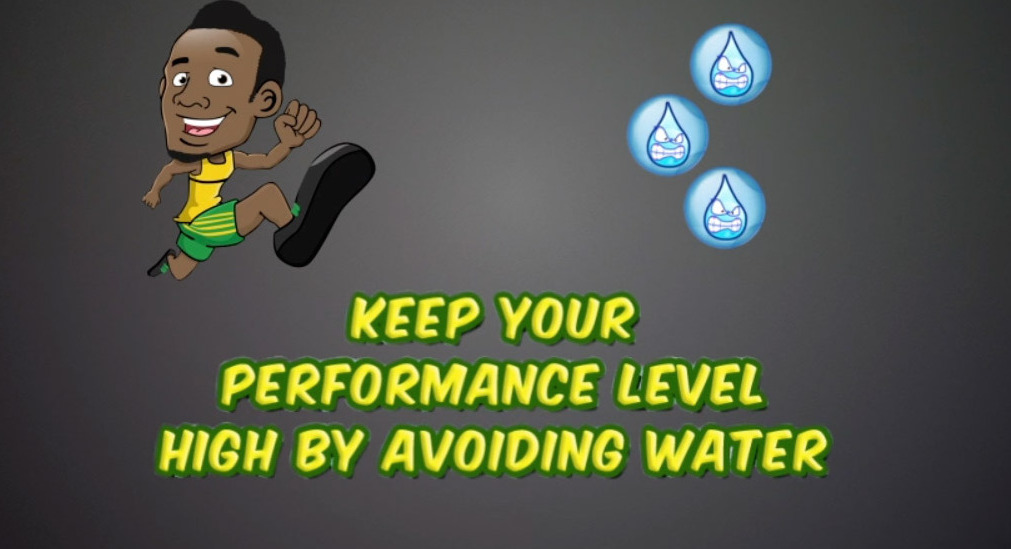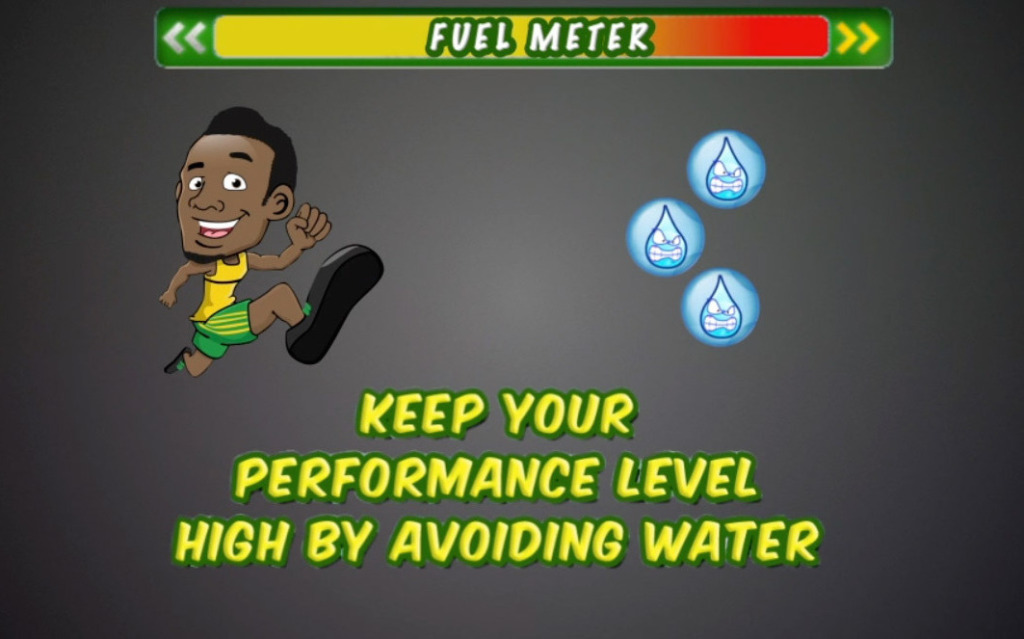
Gatorade Gets In Trouble For Making “Inaccurate” Anti-Water Statements In Game Image courtesy of Gatorade
Sure, any aspiring track star would love to be just like eight-time Olympic gold medalist Usain Bolt. But years after Gatorade pushed a mobile gaming app starring the athlete’s character that urged players to “Keep your performance level high by avoiding water,” the company will have to pay $300,000 as part of a settlement resolving allegations that it violated California law by talking smack about H2O.
In a complaint [PDF] filed in California on Thursday, along with the related settlement [PDF], California accused accused Gatorade of violating state law in its free “Bolt!” game “through numerous false and misleading statements and depictions of water.”
The game was available for free on iTunes from 2012 through 2013, as well as for a period of time in 2017. It’s no longer available, but resulted in more than 2.3 million downloads worldwide. More than 70% of users were 13-24 years old.
Anti-water statements
In the game, players controlled a cartoon version of Bolt in a long race. Throughout, water was “inaccurately and negatively depicted as hindering the sprinter’s performance.”
For example, when players touched a Gatorade icon, the Bolt character would run faster and increase their “fuel meter.” When they hit a water droplet, Bolt slowed down and the fuel meter decreased.
“Keep your performance level high by avoiding water” and “grab Gatorade to fill your fuel meter,” the game’s tutorial urged.
Making matters worse, the complaint claims that these marketing messages “courted a youthful demographic that is particularly prone to inaccurate beliefs regarding the nutrition benefits of beverages.”
The lawsuit cites studies that found that so-called “advergames” — downloadable or internet-based videogames that feature a brand-name product within the game — “have a significant impact on consumer behavior not unlike more traditional forms of advertising.”
The complaint claimed that Gatorade’s marketing of the game was false or misleading in at least three ways:
1. “The game falsely depicted water slowing down the athletic performance of the Olympic sprinter, while depicting Gatorade as increasing his speed.”
2. The game’s fuel meter falsely depicted water as decreasing the amount of “fuel” available to the Olympic athlete, while depicting Gatorade as increasing the amount of available “fuel.”
3. The tutorial directly told its users to “Keep your performance level high by avoiding water.”
Settling up
As part of the settlement filed yesterday, Gatorade will pay $300,000, of which $120,000 will be used to fund research or education on water consumption and the nutrition of children and teenagers.
The settlement also requires Gatorade to disclose endorser relationships in any social media posts and prohibits the company from advertising its products in media where children under age 12 comprise more than 35% of the audience. The settlement also prohibits the company from negatively depicting water in any kind of ads.
“Making misleading statements is a violation of California law. But making misleading statements aimed at our children is beyond unlawful, it’s morally wrong and a betrayal of trust,” said Attorney General Becerra. “It’s what causes consumers to lose faith in the products they buy.”
Want more consumer news? Visit our parent organization, Consumer Reports, for the latest on scams, recalls, and other consumer issues.


